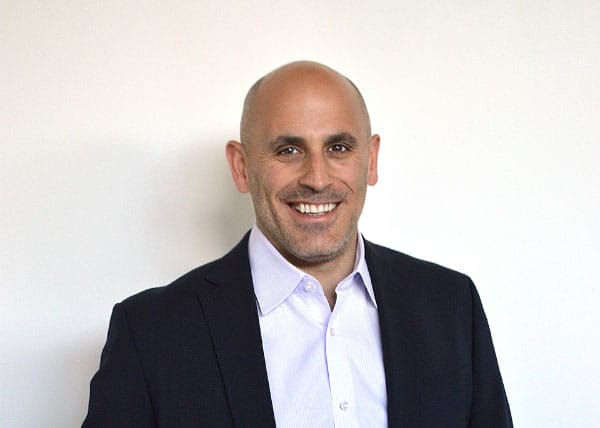We were lucky enough to have Wharton alumnus Marc Lore—co-founder and CEO of Jet and co-founder and former CEO of Quidsi, the e-commerce company responsible for Diapers.com, Soap.com, Wag.com and more—as the honored guest at our Ninth Annual Wharton Entrepreneurship Alumni Dinner in Philadelphia. During Lore’s fireside chat with Wharton’s Samuel R. Harrell Emeritus Professor Leonard Lodish, the packed room of Penn and Wharton alumni entrepreneurs learned about how Lore is setting out to revolutionize e-commerce yet again, this time by building a more efficient online shopping ecosystem that benefits both retailers and consumers. For this knowledgeable and interested audience, Lore dug in deep, explaining the logic and ambitions behind Jet’s business model.
That’s not what we’re going to cover here. The Jet business model has already been written about in depth elsewhere, such as in these great articles in BloombergBusiness and Forbes. And any additional tidbits that Lore let fall for this room full of insiders will stay in the room.
What hasn’t gotten into the press yet is Jet’s equally revolutionary company culture, which Lore summed up in three words: “transparency, trust and fairness.”
As he put it, “Together, those work to empower people.”
What does Lore mean by transparency, trust and fairness? Here’s the answer, in his own words:
Transparency:
“With respect to transparency, I don’t mean infringing on people’s privacy or telling people that you think they’re doing a bad job. I mean transparency at the corporate level, where the company is open with information.
We’re super open, and I think that’s really empowering. We’ll have a board meeting, and then I’ll give the entire board presentation to the entire company. We’re completely open with shares outstanding, share value, what the difference between preferred and common is, where you rank as a common shareholder, what your stock’s worth. Our employees have all given up big cash comps to come work at Jet, and they have some stock so they’re shareholders—they’re invested in the company, they’re owners in the company and I treat them that way.
I want everyone to know everything. I want to share as much information as possible with people so they feel empowered and they feel connected to the vision and understand how their work contributes to the overall goals of the company.
I think that’s really important for employee happiness. So far it’s worked out really well.”
Trust:
“Trusting employees means hiring them for a job, trusting that they know their job better than you and not micromanaging, and giving them the rope and the resources to do their job.”
Fairness:
“Most companies compensate people based on what they feel they can get away with. We have a comp system at Jet where everybody at the same level gets the exact same pay. It’s heavily weighted toward stock, so everyone’s an owner in the company. The idea is not to focus too much on cash comp, but the way to make more money and get more stock is to get promoted to the next level, and that’s done strictly based on what we believe is fair.
Here are three cases that demonstrate this policy of fairness in action. In two cases we hired people, and within the first month of them joining we promoted them, gave them a $25,000 salary raise and bumped their equity, because they were at the wrong level. Another person we hired and they accepted the job. But they were kind of borderline, and after further discussions the CTO realized they should have been at a higher level. So after they’d already accepted the job, before they started, we called them up and gave them a raise. Bumped them $25,000, gave them stock—they were blown away. They couldn’t understand why we needed to do that if they’d already accepted the job.
It really puts a stake in the ground for a culture that’s based around fairness. Even if you don’t agree with us in terms of where you think you belong, at least you know the lens that the company’s looking through is this fairness lens. People respect that, and they respect the company.”
Between Jet’s disruptive e-commerce strategy and its powerful company culture, we have the feeling that Lore is going to do it again—change the way we shop, and maybe even the way we work.
It was a privilege to hear him speak and to get a glimpse of this coming change just at the moment of its beginning. Jet will launch in spring 2015, and we’ll be watching. And probably using it to shop.
Editor’s note: The original version of this article appeared on the Wharton Entrepreneurship Blog on March 24, 2015.

























